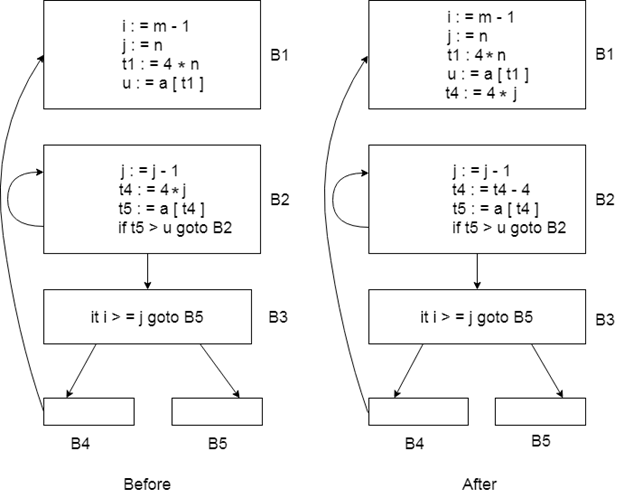Loop Optimization
Loop optimization is most valuable machine-independent optimization because program's inner loop takes bulk to time of a programmer.
If we decrease the number of instructions in an inner loop then the running time of a program may be improved even if we increase the amount of code outside that loop.
For loop optimization the following three techniques are important:
- Code motion
- Induction-variable elimination
- Strength reduction
1.Code Motion:
Code motion is used to decrease the amount of code in loop. This transformation takes a statement or expression which can be moved outside the loop body without affecting the semantics of the program.
For example
In the while statement, the limit-2 equation is a loop invariant equation.
2.Induction-Variable Elimination
Induction variable elimination is used to replace variable from inner loop.
It can reduce the number of additions in a loop. It improves both code space and run time performance.

In this figure, we can replace the assignment t4:=4*j by t4:=t4-4. The only problem which will be arose that t4 does not have a value when we enter block B2 for the first time. So we place a relation t4=4*j on entry to the block B2.
3.Reduction in Strength
- Strength reduction is used to replace the expensive operation by the cheaper once on the target machine.
- Addition of a constant is cheaper than a multiplication. So we can replace multiplication with an addition within the loop.
- Multiplication is cheaper than exponentiation. So we can replace exponentiation with multiplication within the loop.
Example:
After strength reduction the code will be:
In the above code, it is cheaper to compute s=s+6 than j=3 *i




No comments:
Post a Comment